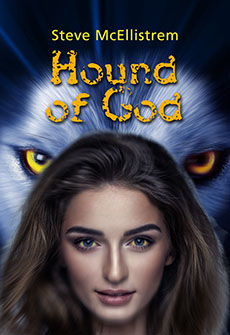I’ve written about free will before because I find it a fascinating subject, but I still struggle with some of the concepts around the idea. Mostly, I want to believe I have it, even as I increasingly believe none of us really do.
Many physicists believe (like Einstein) that we live in a deterministic universe, where the laws of physics are already written, which means there cannot be any such thing as free will. It only seems like we have free will because our brains are so complex that we can’t figure out what anyone else will do, or even what we ourselves will do, at any given moment.
On the other side, many (like Heisenberg) say that there’s a randomness to the universe, a chaos, that leads us to make choices that are not predetermined. There are probabilities that we will take action A or action B, and once we make our choice, it is set for all time, but until we make that decision, both possibilities exist.
However, it seems more and more likely that there is no such thing as free will. Our futures are as set as our pasts. We only think we have free will because we don’t know which choices we will eventually make when presented with several options. The universe knows. God knows. But we don’t.
The evidence gathered so far seems to support the idea that the universe is deterministic – that all paths are already in place, that we are merely playing our assigned roles as we move about our lives.
We talk about fate, but many of us don’t really believe in it. We think we have agency – that we can do whatever we wish to change ourselves and the world around us. We think we have the power to run our own lives.
But the universe may already be written in stone, so to speak. All our choices may have already been pre-selected. If that’s true, nothing we do will change that.
Yet even if that is true, we needn’t surrender to fate. We can still change for the better. We can tell ourselves that our timeline shifted at this particular moment and we suddenly became kinder and smarter and less selfish. And we can then act accordingly.
Sure, we’re going to make stupid mistakes. Everyone does. And if we were fated to make a stupid mistake, we can more easily forgive ourselves and move on. That’s a good thing. We don’t need to obsess over every wrong choice.
Perhaps more importantly, when others do things we find repulsive, we can remind ourselves that they were fated to do so. That doesn’t necessarily absolve them for their bad behavior, but knowing they did only what they had to do within the deterministic universe might make it easier to forgive them.
Otherwise, it’s like getting angry at Nature for producing a tornado or an earthquake. You can rage all you want, but it was bound to happen, and you just happened to be in the wrong place at the wrong time. So, yes, it’s frustrating, but it was also inevitable.
How then to avoid that kind of hurt in the future?
Maybe by distancing yourself from the people who are performing the bad acts. Perhaps not cutting them out of your life permanently, but engaging with them less often, leaving them to their own devices and finding instead the people who will make you happy.
